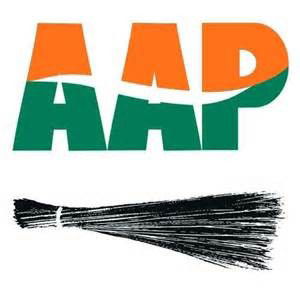Articles features
A success story called the AAP (Book Review)

Title: Capital Conquest; Author: Saba Naqvi; Publisher: Hachette India; Pages: 202; Price: Rs.499
The
book could not have come at a better time. This is a well-written story
of the rise, fall (crash?) and most dramatic rise of the Aam Aadmi
Party (AAP). It is not a saga of Arvind Kejriwal per se. Saba Naqvi, a
respected political writer, followed closely both the AAP and Kejriwal
for Outlook and uses her understanding to explain what helped the
country's youngest party to arise from the ashes for a spectacular
comeback in February -- and what the future holds for the AAP.
Saba
gives full marks to the spirit of volunteerism that proved the key to
the AAP's success. After all, it ran a campaign and won the Delhi
election "with the kind of money that can only buy one bungalow in the
heart of the city". Its biggest asset was former income tax
officer-turned-activist Kejriwal. He spoke largely to the poor, the bulk
of Delhi's votes, and spoke from the heart, with the narrative of haves
and have-nots, never taking recourse to sectional appeals based on
caste and community. In the process, he created a political pyramid the
Congress had mastered over the years but yet differently, a model "which
is unbeatable when it works".
But even as the AAP was fighting
its biggest battle, the convulsions within that later came out so openly
were already beginning to be felt. Saba says that for the Delhi
Mahabharat, Kejriwal formed a new core team minus Prashant Bhushan and
Yogendra Yadav, both of whom had voiced misgivings on the party's inner
workings. Rather than deal with an internal feud at a critical time,
Kejriwal created another core group and plunged into the task at hand.
While
being sympathetic to Kejriwal's point of view on the convulsions, Saba
admits that a certain section of intellectuals who saw the AAP as a
vehicle for their ideas are disappointed with the ouster of Bhushan and
Yadav. The aftershocks from the main quake, she feels, will continue for
some time. But Saba is equally emphatic that the dissidents stood on
the margins while the Delhi campaign unfolded and would have felt left
out as the smashing win was recorded (67 out of 70 seats). These
convulsions would prove to be "a blip in the history of the AAP although
the stories they produce appear to be sensational at present".
So,
what does the AAP's astounding win - which incidentally was Narendra
Modi's first electoral defeat - mean to India? The real challenge to the
AAP will come from the system it has taken on, Saba says, describing
Kejriwal as "the most dangerous man in India today" to those with vested
interests. A party of doers, the AAP is a potential danger for both the
Left and the Right. Saba is sure the AAP will fight the next assembly
election in Punjab, which elected all its four Lok Sabha members in 2014
and where the AAP stunned everyone by cornering a quarter of all votes.
But
the AAP's political heart will remain Delhi. "The key to becoming a
real national alternative, Kejriwal believes, will be to create an
entirely new model for governance in Delhi." Delhi's chief
minister-without-portfolios is determined to evolve into an innovative
administrator from his previous avatars as activist and campaigner.
"They have the imagination and the will. Now we have to see if they can
apply it."
(M.R. Narayan Swamy is an Executive Editor at IANS.
The views expressed are personal. He can be reached on
narayan.swamy@ians.in )







































